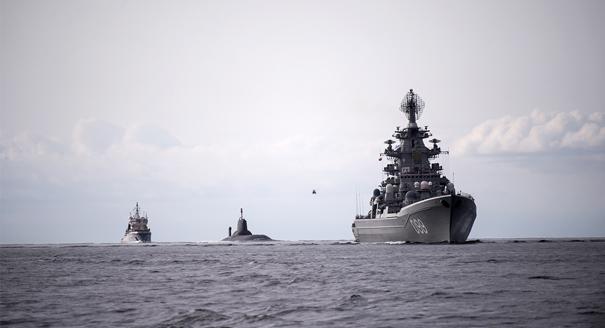Some will remember that thirty years ago, Denmark was very active in supporting the regained independence of Estonia, Latvia, and Lithuania, and was among the first countries to restore diplomatic relations with the three Baltic states. Foreign Minister Uffe Ellemann-Jensen played an important role in advancing this agenda in the EU, and Danish Defense Minister Hans Hækkerup took the lead in establishing the Baltic Peacekeeping Battalion and other defense projects, including the Danish-German-Polish Brigade.
As the three Baltic states joined the EU and NATO, Russia normalized relations with Denmark, allowing the reburial of Empress Maria Fyodorovna in St. Petersburg. Denmark permitted the Nord Stream 1 pipeline to go through Danish waters, and arranged an official visit of Russian President Dmitry Medvedev to Denmark in 2010, as well as an official visit to Russia by the Queen of Denmark in 2011.
The relationship changed dramatically, however, after Russia’s occupation of Crimea in 2014 and its involvement in the conflict in eastern Ukraine. The Danish people again felt sympathy with the small Baltic nations, who feared new Russian interference.
Still, Denmark and the Danes support dialogue with Russia, without jeopardizing the international rules-based system on which any small state is heavily reliant. If you ask me, therefore, we should stand our ground in support of that rules-based system, from the UN Charter through to the Helsinki Final Act and various Council of Europe conventions and protocols: we should continue to defend these rules and principles and make others—who have also subscribed to them—accountable.
I am troubled by several issues in Russia’s current development. The prevailing argument from official circles of the need for Russia to protect itself from outside influence and the need for offensive countermeasures is especially troubling. First of all, this policy has serious ramifications for those groups and individuals in Russia who are open to foreign influence and could thus become labeled “agents” of Western politics or even accused of fomenting a “color revolution” within Russia. Secondly, the Russian leadership has developed countermeasures to use targeted (dis)information to influence public opinion in other countries as well. An important instrument of nonlinear warfare is the expansion of Russian foreign-language media. Vladimir Putin, in his programmatic 2012 article “Russia and the changing world,” defined soft power as a complex of tools and methods for achieving foreign policy goals without deploying weapons, using information tools and other forms of intervention. According to Putin, so-called “pseudo NGOs” could provoke extremism, separatism, and nationalism, and manipulate social perception, thus undermining the sovereignty of other states.
Looking to the military situation in the Baltic Sea region, Russia’s increased military activity, coupled with relatively common airspace and territorial water violations, is widely recognized as a source of concern. Russian military aircraft often fly “dark”—without transponders or a flight plan—between St. Petersburg and the Russian exclave of Kaliningrad. With the general situation having worsened and tensions having risen, there is a risk that collisions and provocations could lead to rapid and uncontrolled escalation. In a high-tension environment, it is important to keep channels open for political dialogue and to seek ways in which existing confidence-building measures can be reactivated.
Last but by no means least is the fact that Russia increasingly perceives international cooperation purely from the perspective of power politics. Russia interprets the rhetoric on common rules and policies based on mutual dependence merely as a deceitful veil concealing the “real” agenda based on geopolitics and zero-sum games. Hence, the EU’s Eastern Neighborhood Policy is perceived as a hostile, anti-Russian attempt to increase Western influence in the region, which Russia sees as its sphere of influence.
In a ministerial session of the Council of the Baltic Sea States in May 2020, Foreign Minister Sergey Lavrov called for a reset of relations around the Baltic Sea and to use the platform for political dialogue. I think this is important because it signals a move away from a zero-sum perception of relationships between countries in the Baltic Sea region. Instead we should work to boost relations, people-to-people meetings, and issues of common interest: climate, youth, university cooperation, culture, cities, fisheries, and sustainable development. We should use the fora we have at hand—the Arctic Council, Nordic Council, and Baltic Sea Council—to develop and sustain our relationship.
In terms of revitalizing talks on a European security architecture and as to minimum work on confidence-building measures, I believe that East and West should begin discussions in the NATO-Russia Council or in the OSCE on our principles, while we in the Baltic area could begin work on reviving confidence-building measures.
In memoriam of Per Carlsen, former ambassador to Russia (2005–2010), Lithuania (1997), and Latvia (2010–2015); director of the Danish Institute for International Studies (2003–2005); and senior advisor at the Danish Foreign Policy Society (2018–2020).
This publication is part of the Security in the Baltic Sea Region project carried out with the support of the Royal Danish Embassy in Moscow.
